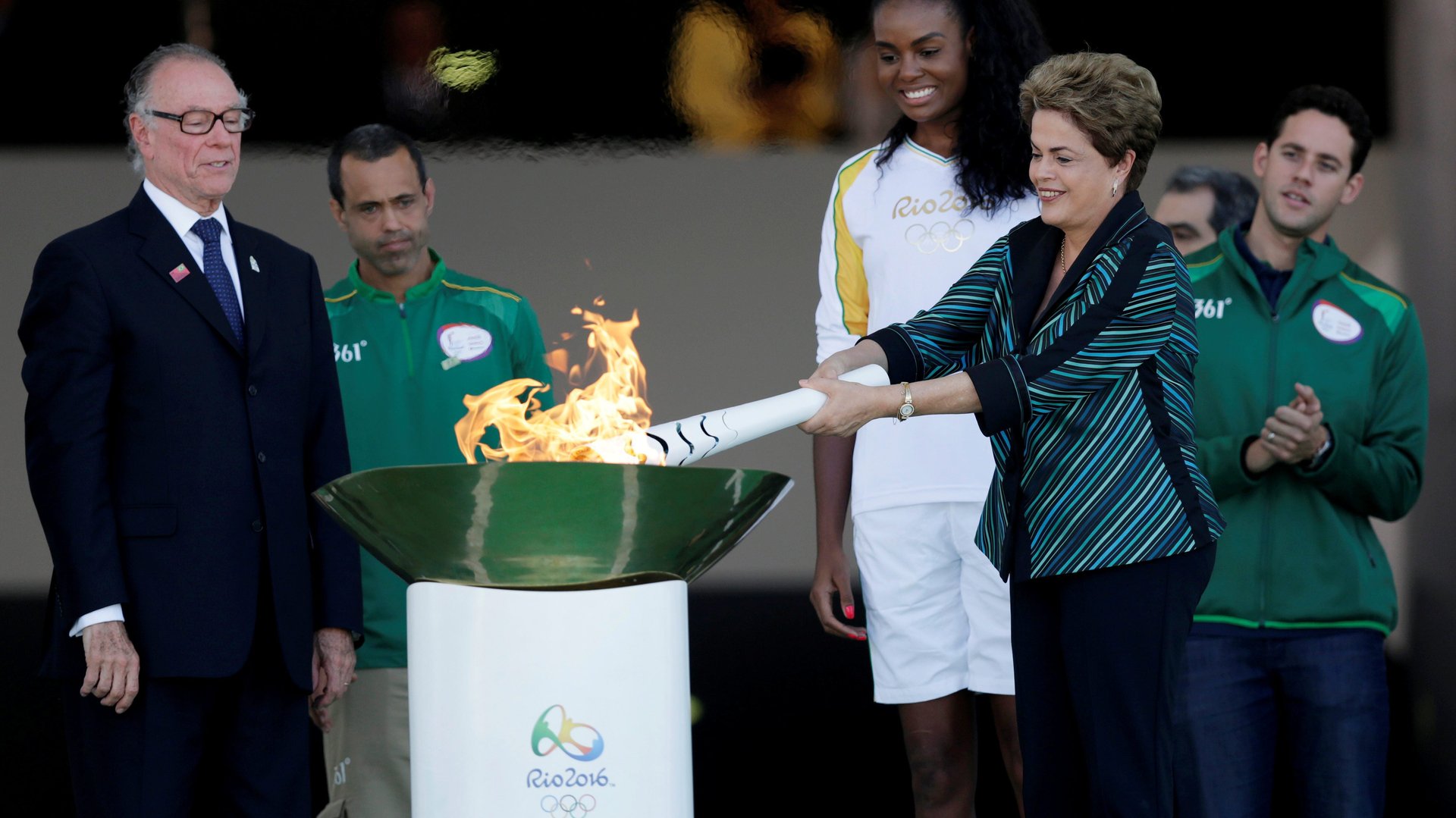Two of the Rio Olympics’ biggest champions won’t be at the games
Dilma Rousseff has spent her whole presidency working to put on the Rio 2016 Olympics. But Brazil’s suspended president won’t be on the stands when the games open on Aug. 5.


Dilma Rousseff has spent her whole presidency working to put on the Rio 2016 Olympics. But Brazil’s suspended president won’t be on the stands when the games open on Aug. 5.
Neither will her predecessor and ally, former president Luiz Inácio Lula da Silva, who spearheaded and won Brazil’s Olympic bid. The two have said they are boycotting the games because they don’t want to play second fiddle to opposing-party politician, Michel Temer. He’s been acting president since May, when Brazil’s senate voted to impeach Rousseff for allegedly doctoring the national budget.
It’s a turn of events hardly imaginable seven years ago, when a jubilant Lula accepted to host the Olympics. Back then Brazil’s economy was surging. The Olympic win was seen as a symbol of the country’s rising station in the global stage.
But the commodity boom that underpinned Brazil’s good fortunes petered out, and so has the country’s economy, currently in the midst of its worst downturn in recent memory.
As it that weren’t bad enough, Brazil is also being shaken by confidence crisis in its political system. A far-reaching corruption probe at Brazil’s oil company Petrobras has ensnared dozens of politicians, including Lula and Temer. Outraged Brazilians have been protesting in the streets en masse. Amid the political turmoil, Rousseff saw her approval ratings plummet.
Given the state of the country, it’s no wonder Brazilians are down on the Olympics. Half of Brazilians oppose the games, and say they have no interest in them, according to a poll by Datafolha (link in Portuguese, pdf) earlier this month. That’s a considerable souring in the country’s Olympic mood. In June 2013, the majority of Brazilians, 64%, told the polling firm they backed the Olympics and more than 70% said they were interested in them to some degree.
Nearly half say that the organization of the games will make Brazilians more ashamed than proud of their country.
Rousseff is probably feeling pretty down herself. In April, before she had to step down, she told CNN she would be very sad if she was forced out before the games.
“I would very much like to take part in the Olympic process, because I helped build the effort from day one,” she said back then.